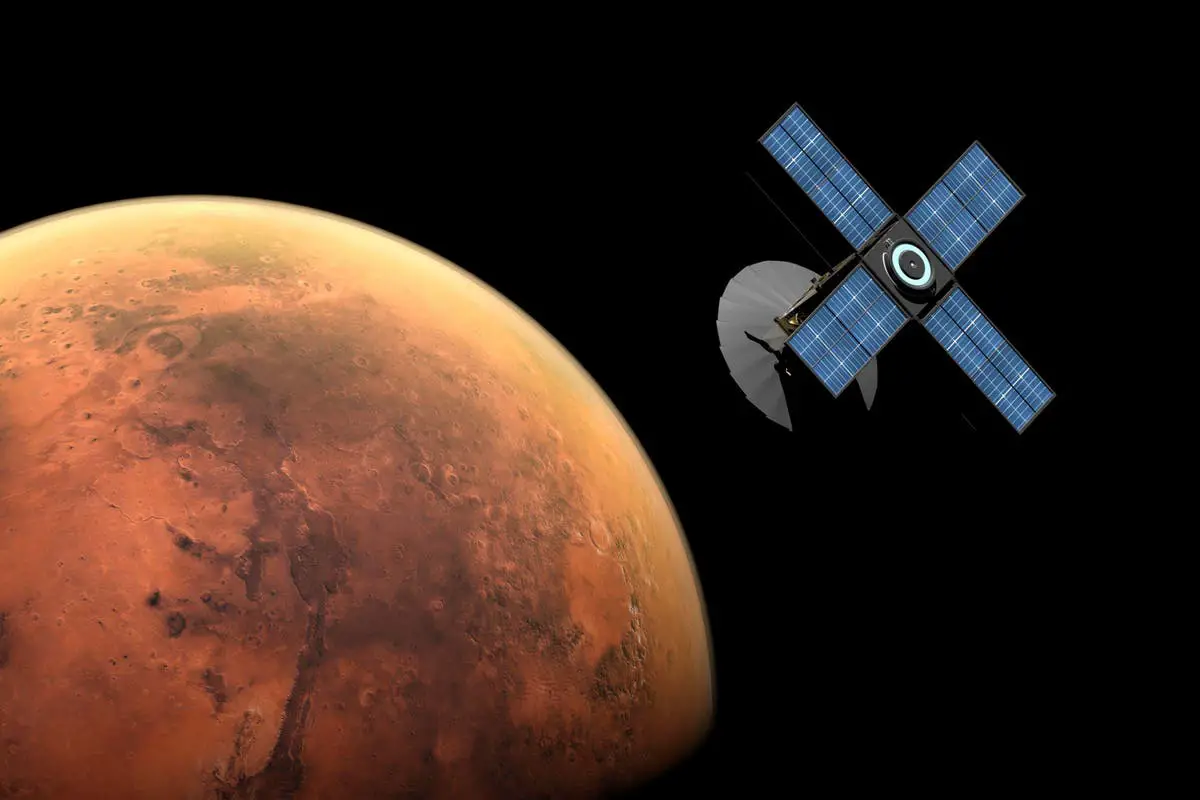Recent research considerably supports the hypothesis that there are lakes of liquid water under Mars’ polar ice caps. The following research has put doubt on previous findings from 2018 that had first inspired optimism that water may be present under the frozen ice caps of Mars.
These latest findings seem to confirm the earlier findings, providing even more support for the hypothesis that Mars’ polar ice caps may support lakes of liquid water due to the planet’s geological activity. Researchers from the University of Cambridge and NASA’s Mars Global Surveyor spacecraft employed laser altimeter measurements to map out the top surface of the polar ice caps in order to support their claims.
This research showed minor patterns in the height and form of the surface, which was exactly in line with predictions made by models on how a sub-surface lake would alter the shape of an ice cap.
This is especially significant since, in 2018, the European Space Agency’s Mars Express utilized ice-penetrating radar on the same Martian polar ice caps and discovered that the signal being reflected back suggested they contained liquid water below and were not formed of solid ice as was predicted owing to the planet’s very cold environment. The red planet may only contain liquid water behind these ice caps if it is more geologically active than predicted, which goes against existing geological theories of Mars.
Soon after, a further examination of the Mars Express data showed that the ice-penetrating radar signals weren’t always indicative of the presence of liquid water and may have come from other dry minerals discovered on Mars. Therefore, opponents contended, the evidence for current Martian lakes was eroding unless Mars was more geologically active than anticipated and capable of producing the heat required to preserve water in a liquid condition.
However, the most recent study, which is based on an entirely new set of measurements and tools, once again provides compelling evidence that Mars is likely more geologically active than previously believed and that there are lakes of liquid water under its ice covers.
The study’s lead author, Professor Neil Arnold of Cambridge’s Scott Polar Research Institute, stated, “The combination of the new topography evidence, our computer model findings, and the radar data make it far more plausible that at least one region of subglacial liquid water exists on Mars today.” This means that Mars must still be geothermally active in order to keep the water under the ice cover liquid.
The findings of the study conducted by the Cambridge team, which also comprised academics from the University of Sheffield, the University of Nantes, University College, Dublin, and the Open University, have been published in the journal Nature Astronomy.
The group explains in that publication how they built computer models using data of ice caps located on Earth to show how the undulation of the lakes’ water under those caps shapes their surfaces. The scientists then entered in the laser altimeter data from Mars Global Surveyor and adjusted these models to reflect the Martian climate. The surface of the Martian ice caps was discovered to have undulations, just as predicted.
According to Arnold, “the quality of the data coming back from Mars, from orbiting satellites as well as from the landers, is such that we can use it to use it to answer extremely tough questions regarding conditions on, and even beneath, the planet’s surface.” Utilizing these methods to learn more about worlds other than our own is interesting.
The team’s results are especially important now that it seems that NASA and other space organizations are refocusing their efforts from general astronomy to a more focused search for alien life. As Mars is very close to other life-hunt destinations in the solar system, including Jupiter’s moon Europa and Saturn’s moon Enceladus, these new results, together with those radar data from 2018, might play a crucial role in preparing future trips to the red planet.
With Inputs from The Debrief

